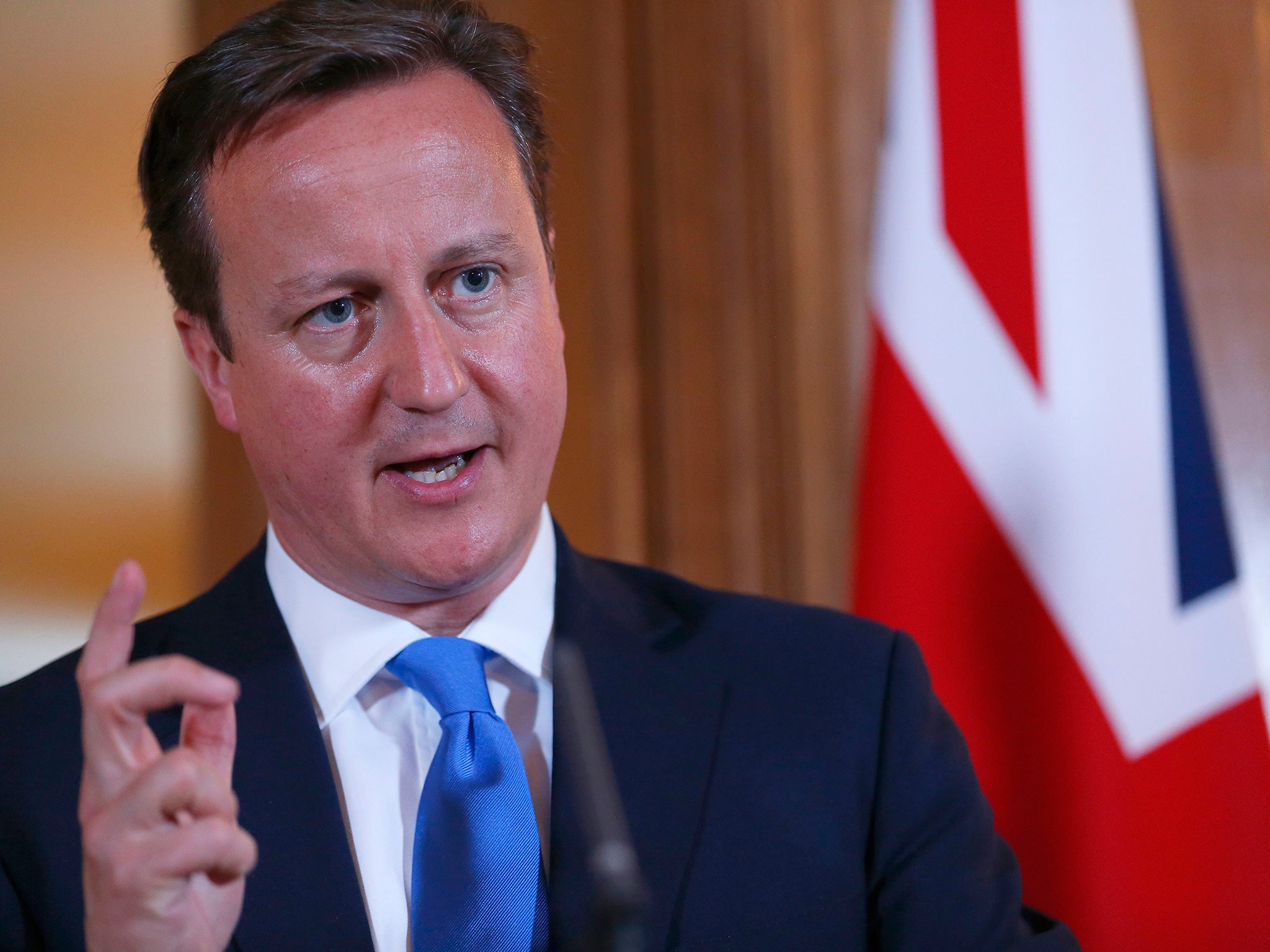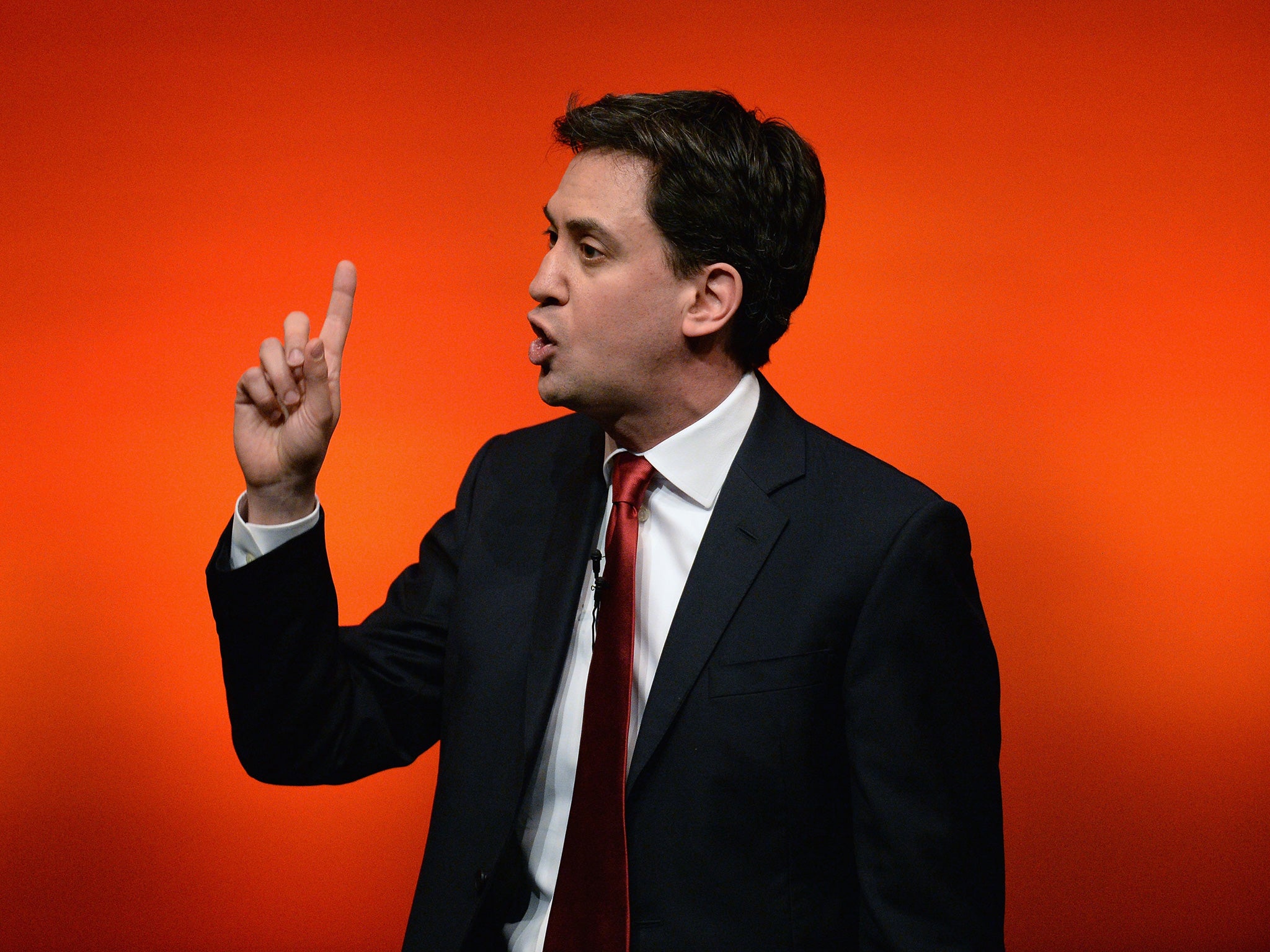General Election 2015: David Cameron's 'small-minded isolationism' has reduced UK standing in the world, says Miliband
The Labour leader will try to reassure critics by saying his first responsibility would be 'to keep our country safe and secure'

Your support helps us to tell the story
From reproductive rights to climate change to Big Tech, The Independent is on the ground when the story is developing. Whether it's investigating the financials of Elon Musk's pro-Trump PAC or producing our latest documentary, 'The A Word', which shines a light on the American women fighting for reproductive rights, we know how important it is to parse out the facts from the messaging.
At such a critical moment in US history, we need reporters on the ground. Your donation allows us to keep sending journalists to speak to both sides of the story.
The Independent is trusted by Americans across the entire political spectrum. And unlike many other quality news outlets, we choose not to lock Americans out of our reporting and analysis with paywalls. We believe quality journalism should be available to everyone, paid for by those who can afford it.
Your support makes all the difference.Ed Miliband will claim that David Cameron’s “small-minded isolationism” has sharply reduced Britain’s influence in the world, and will hold the Prime Minister partly responsible for this week’s deaths of migrants in the Mediterranean.
In a rare speech on foreign affairs, the Labour leader will try to reassure critics who doubt his credentials as prime minister by saying his first responsibility would be “to keep our country safe and secure.” He will contrast the Conservatives’ “pessimistic isolationism” with Labour’s “genuine and hard-headed multilateralism.”
Addressing the Chatham House think tank in London, Mr Miliband will argue that this week’s tragic scenes in the Mediterranean stem from the failure of post-conflict planning in Libya after Britain played a key role in toppling Colonel Muammar Gaddafi. “David Cameron was wrong to assume that Libya’s political culture and institutions could be left to evolve and transform on their own,” he will say.
On 23 April Mr Cameron discussed the migrants crisis with fellow EU leaders in Brussels. They were expected to agree new measures aimed at preventing the deaths of more people making the perilous journey across the Mediterranean from Libya and other African countries.

In his hard-hitting attack, Mr Miliband will claim: “David Cameron has presided over the biggest loss of influence for our country in a generation. And that has happened because the government he led has stepped away from the world, rather than confidently towards it, side-lined in crucial international events time after time under this government, just at the moment when we needed to engage.
“It is time to reject the small-minded isolationism that has characterised this government, diminished the office of prime minister and shrunk the influence of Britain. Because this Government’s approach has and weakened Britain at a time when the challenges are perhaps greater and more complex than at any time since the Second World War.”
He will claim that Mr Cameron’s inward-looking approach has left Britain on the sidelines over Russia’s aggression in Ukraine.
Mr Miliband has faced criticism for saying little about foreign policy since becoming Labour leader and the issue has had a low profile in the election campaign so far. The Conservatives have accused him of rewriting history over the Commons defeat he inflicted on Mr Cameron in 2013, which scuppered military action against Syria’s President Bashar Assad after he used chemical weapons against his own people. Mr Miliband has portrayed it as a bold stance, but the Tories say he was trying to prevent a Labour split.
Mr Miliband will promise never to forget the “vital lessons” of Tony Blair’s backing for the US-led invasion of Iraq in 2003 when making judgements on military intervention. But he will try to move on from Labour’s long debate on the Iraq war, saying that military action alone will not defeat the “barbarism” of Isis – the “most pressing” challenge -- and calling for a long-term, multinational political strategy to tackle extremism.
Mr Miliband will pledge to restore Britain’s commitment to international bodies including the UN, NATO, the Commonwealth and the EU. He will argue that pressure from a divided Tory party and Ukip has pushed Mr Cameron to the edge of EU exit and an historic betrayal of the national interest.
“David Cameron has done so not because of any great political principle or ideal. Deep down he doesn’t really believe we would be better off out of Europe,” he will say. “He has taken us to the edge of European exit because he has been too weak to control his own party and too anxious about the rise of Ukip, a rise he could and should have challenged, but pandered to instead.”
Mr Miliband will say: “We will rebuild our influence and that starts with the EU. We will never put our national interest at risk by threatening to leave.”
Meanwhile, Labour has fallen below 30 per cent in a mainstream opinion poll for the first time in the General Election campaign. The Survation poll for the Daily Mirror put the party on 29 per cent - down four points compared to a similar poll released on 17 April.
The Conservatives were down one point to 33 per cent, with Liberal Democrats up three to 10 per cent, Ukip up one on 18 per cent, the Greens up one to 4 per cent and the SNP unchanged on 4 per cent.
Join our commenting forum
Join thought-provoking conversations, follow other Independent readers and see their replies
Comments